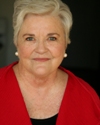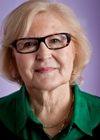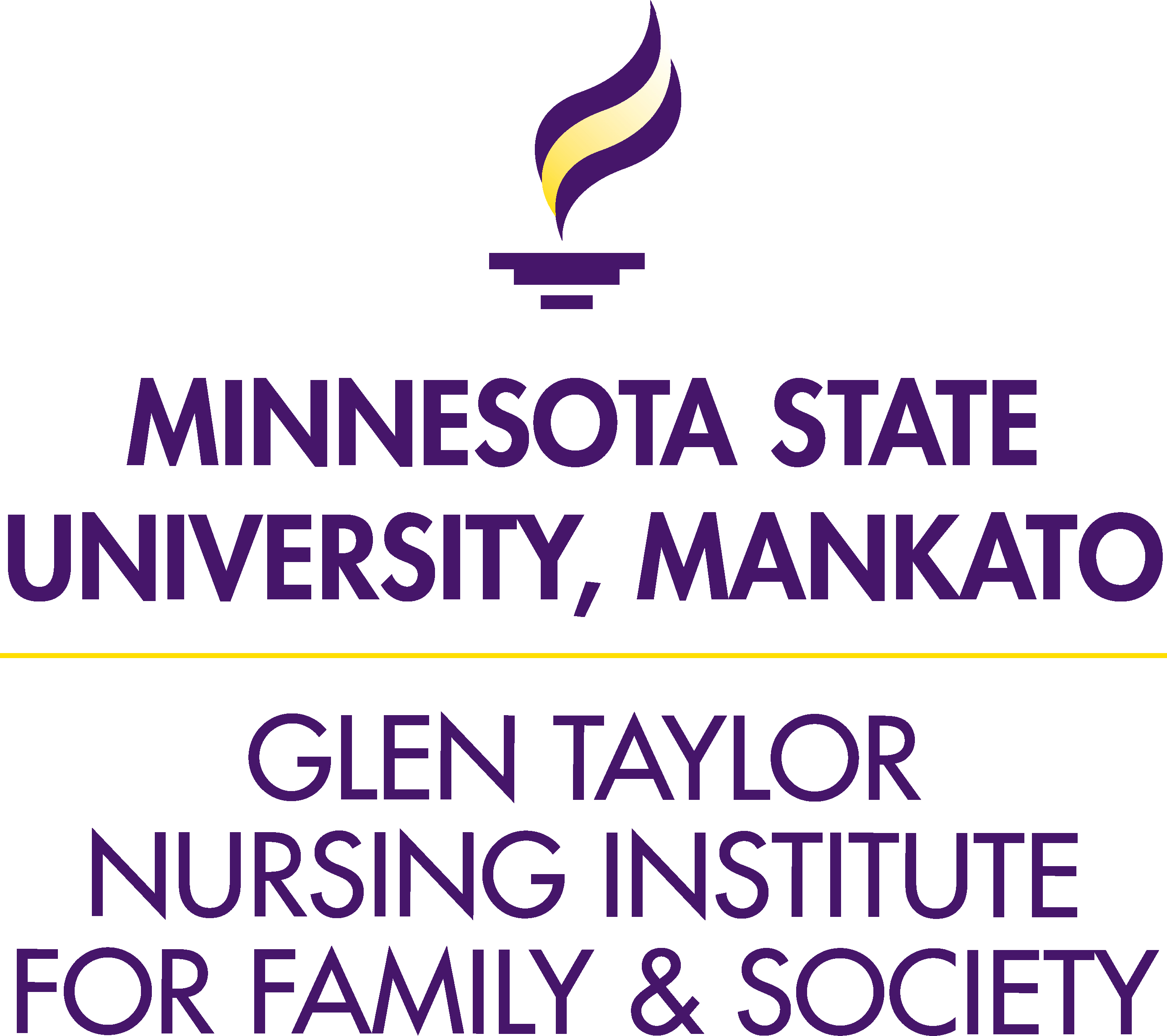Highlights of the 2013 conference include:
3 keynote speakers:
 Patricia Benner RN, PhD, FAAN, is a Professor Emerita University of California, San Francisco School of Nursing. She is a noted nursing educator and author of From Novice to Expert: Excellence and Power in Nursing Practice, which has been translated into eight languages. She has directed over 50 doctoral dissertations. She pioneered the use of Interpretive Phenomenology in Nursing. She is the director of the Carnegie Foundation for the Advancement of Teaching National Nursing Education Study, Educating Nurses: A Call for Radical Transformation which is the first such study in forty years. Additionally, she collaborated with the Carnegie Preparation for the Professions studies of clergy, engineering, law, and medicine. Dr. Benner is designated as a Living Legend of the American Academy of Nursing. She was elected an honorary fellow of the Royal College of Nursing. Her work has influence beyond nursing in the areas of clinical practice and clinical ethics. She has received two honorary doctorates. She is the first author of Expertise in Nursing Practice: Caring, Ethics and Clinical Judgment (2010) with Christine Tanner and Catherine Chesla, and she has coauthored twelve other notable books including a 2nd Edition of Clinical Wisdom and Interventions in Acute and Critical Care: A Thinking-In-Action Approach. For more information, visit her website www.educatingnurses.com.
Patricia Benner RN, PhD, FAAN, is a Professor Emerita University of California, San Francisco School of Nursing. She is a noted nursing educator and author of From Novice to Expert: Excellence and Power in Nursing Practice, which has been translated into eight languages. She has directed over 50 doctoral dissertations. She pioneered the use of Interpretive Phenomenology in Nursing. She is the director of the Carnegie Foundation for the Advancement of Teaching National Nursing Education Study, Educating Nurses: A Call for Radical Transformation which is the first such study in forty years. Additionally, she collaborated with the Carnegie Preparation for the Professions studies of clergy, engineering, law, and medicine. Dr. Benner is designated as a Living Legend of the American Academy of Nursing. She was elected an honorary fellow of the Royal College of Nursing. Her work has influence beyond nursing in the areas of clinical practice and clinical ethics. She has received two honorary doctorates. She is the first author of Expertise in Nursing Practice: Caring, Ethics and Clinical Judgment (2010) with Christine Tanner and Catherine Chesla, and she has coauthored twelve other notable books including a 2nd Edition of Clinical Wisdom and Interventions in Acute and Critical Care: A Thinking-In-Action Approach. For more information, visit her website www.educatingnurses.com.
 Pauline Boss PhD, is Professor Emeritus, Family Social Science, University of Minnesota, a Fellow in the American Psychological Association and American Association of Marriage and Family Therapy; a former president of the National Council on Family Relations, and a family therapist in private practice.With her groundbreaking work as a scientist-practitioner, Dr. Boss is the principal theorist in the study of ambiguous loss, a term she coined in the 1970s. Since then, she has researched various types of ambiguous loss, summarizing her work in the widely acclaimed book, Ambiguous Loss: Learning to Live with Unresolved Grief (Harvard University Press, 1999). In addition, Loss, Trauma, and Resilience (Norton, 2006), presents six therapeutic guidelines for treatment when loss is complicated by ambiguity. These guidelines are based on her years of work with families of the physically missing during the Vietnam War, after 9/11, and in Kosovo, as well as in clinical work with families with loved ones who are missing psychologically—from Alzheimer’s disease and other dementia, as well as from traumatic brain injury. Dr. Boss’s most recent book, Loving Someone Who Has Dementia (Jossey-Bass, 2011) outlines proven strategies for managing the ongoing stress and grief while caring for someone who has dementia and offers hope for dealing with the ambiguous loss of dementia—having a loved one both here and not here, physically present but psychologically absent. For more information, see her website: www.ambiguousloss.com.
Pauline Boss PhD, is Professor Emeritus, Family Social Science, University of Minnesota, a Fellow in the American Psychological Association and American Association of Marriage and Family Therapy; a former president of the National Council on Family Relations, and a family therapist in private practice.With her groundbreaking work as a scientist-practitioner, Dr. Boss is the principal theorist in the study of ambiguous loss, a term she coined in the 1970s. Since then, she has researched various types of ambiguous loss, summarizing her work in the widely acclaimed book, Ambiguous Loss: Learning to Live with Unresolved Grief (Harvard University Press, 1999). In addition, Loss, Trauma, and Resilience (Norton, 2006), presents six therapeutic guidelines for treatment when loss is complicated by ambiguity. These guidelines are based on her years of work with families of the physically missing during the Vietnam War, after 9/11, and in Kosovo, as well as in clinical work with families with loved ones who are missing psychologically—from Alzheimer’s disease and other dementia, as well as from traumatic brain injury. Dr. Boss’s most recent book, Loving Someone Who Has Dementia (Jossey-Bass, 2011) outlines proven strategies for managing the ongoing stress and grief while caring for someone who has dementia and offers hope for dealing with the ambiguous loss of dementia—having a loved one both here and not here, physically present but psychologically absent. For more information, see her website: www.ambiguousloss.com.
 Pamela S. Hinds, PhD, RN, FAAN is currently the Director of the Department of Nursing Research and Quality Outcomes and Associate Director of the Center for Clinical Translational Science at Children’s National Medical Center in Washington, D.C., and a Professor of Pediatrics at the George Washington University in Washington, D. C. She is adjunct professor for the University of Pennsylvania, School of Nursing, Johns Hopkins University, School of Nursing, and the University of Maryland, College of Nursing. Dr. Hinds received her undergraduate degree magna cum laude from the University of Vermont, Burlington, VT and her M.S.N. and Ph.D. degrees from the University of Arizona, Tucson in Psychiatric Nursing (summa cum laude) and Clinical Nursing Research, respectively.
Pamela S. Hinds, PhD, RN, FAAN is currently the Director of the Department of Nursing Research and Quality Outcomes and Associate Director of the Center for Clinical Translational Science at Children’s National Medical Center in Washington, D.C., and a Professor of Pediatrics at the George Washington University in Washington, D. C. She is adjunct professor for the University of Pennsylvania, School of Nursing, Johns Hopkins University, School of Nursing, and the University of Maryland, College of Nursing. Dr. Hinds received her undergraduate degree magna cum laude from the University of Vermont, Burlington, VT and her M.S.N. and Ph.D. degrees from the University of Arizona, Tucson in Psychiatric Nursing (summa cum laude) and Clinical Nursing Research, respectively.
Dr. Hinds had the privilege of creating and leading research related to hope and the pediatric cancer experience, quality of life, fatigue and altered sleep during the treatment of pediatric cancers, and end of life communication and decision making. She served on the IOM committee on end-of-life and palliative care for children in America and the NQF panel on palliative and end-of-life care in America. She is an Oncology Nursing Society Distinguished Nurse Researcher and the Association of Pediatric Oncology and Hematology Distinguished Nurse Researcher. She currently serves on the NCI Symptom and Quality of Life Scientific Committee, Co-director of the Patient-Reported Outcomes (PRO) Resource Center for the Children’s Oncology Group, and member of the NINR Ad Hoc Evaluation Advisory Committee, End-of-life and Palliative Care Science: a Needs Assessment of Federal and Private Research Funding Trends, Project Grants, and National Research Priorities and is the editor-in-chief for the journal, CANCER NURSING: An International Cancer Journal. Dr. Hinds was the founding Director of the Division of Nursing Research at St. Jude Children’s Research Hospital where she led the nursing research program for more than two decades.
Pre-conference workshops:
The conference included 6 pre-conference workshops.
- Unpacking the Illness Beliefs Model: What do we know from practice-based evidence about healing families
- Integrating Spirituality into Family Nursing Practice: “Do I need to? Do I want to? What clinical skills would I need?”
- Using Simulation to Teach Family-Focused Nursing Care
- Using Adaptive Leadership Framework and Trajectory Science Methods for Research in Family Health
- Translating Family Research to Practice and Policy: Examples from practice environments in three countries
- Facilitating Family Caregiving through a Theory-Driven Approach to Intervention Development and Evaluation
Post-conference Workshop
Learning to Teach “Thinking Family” Using High-Fidelity Simulations
Participants toured a comprehensive simulation center, and had the opportunity to participate in a family-focused high-fidelity simulation, and experience a debriefing process with nursing faculty from Minnesota State University, Mankato who are experts in teaching simulation and family nursing. The post-conference sessions showcased strategies to teach effective family nursing practices. Exemplars of simulation scenarios, teaching and evaluation tools were provided.
Following the postconference participants enjoyed a social event and dinner at a local winery, Chankaska Creek Ranch and Winery.
Multiple break-out sessions:
- There were over 200 break-out sessions, members presented their work and were able to learn about the latest developments in family nursing research, education, and practice.
Poster reception:
- Thursday ended with a poster reception. There were nearly 200 posters displayed.
Special events:
- Attendees were welcomed to the conference by pianist Kacie Lee, the Minnesota Chorale (Youth Choir), and harpist Tami Briggs. Despite the rain we enjoyed the Conference Dinner Cruise on the Mississippi River. The closing ceremonies featured local drum group Kalpulli Yaocenoxtli.
